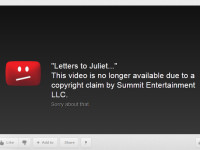When the Supreme Court of Canada issued its SODRAC v. CBC decision last fall, critics warned that the decision may be anti-technology. The majority of the court ruling included a paragraph in which it suggested that users that invest in new technologies may be required to share some of the benefits with copyright holders:
Where the user of one technology derives greater value from the use of reproductions of copyright protected work than another user using reproductions of the copyright protected work in a different technology, technological neutrality will imply that the copyright holder should be entitled to a larger royalty from the user who obtains such greater value. Simply put, it would not be technologically neutral to treat these two technologies as if they were deriving the same value from the reproductions.
The danger with the decision should be immediately obvious as it creates disincentives to invest in new technologies. I argued in a post on the decision:











